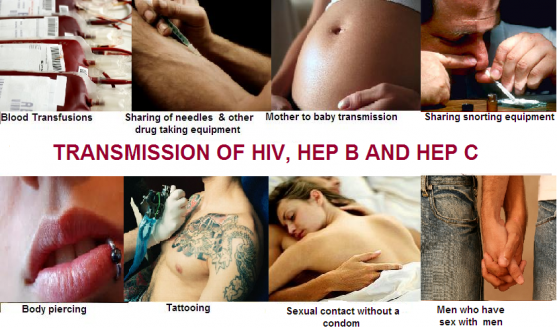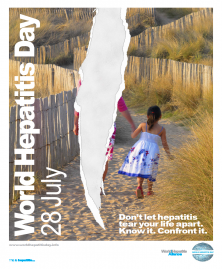The Hepatitis B virus is present in bodily fluids such as blood, semen and vaginal fuild. It can be passed from person to person in the following ways:

- Receiving a blood transfusion / blood products / organ transplantation prior to 1991
- Unprotected sex without a condom. The most at-risk population in Northern Ireland are men that have sex with men, commercial sex workers and those who have multiple sexual partners.
- Tattoos / piercings/ acupuncture (in unregistered premises or with possibly unsterile equipment or with needles that were not new)
- Regularly shared razors or toothbrushes (with a person who is known to have hepatitis B or may have been at risk, see risk factors above)
- Born in a high risk country (Asia, Africa, South America, Pacific Islands, Eastern Europe, and the Middle East)
- Medical or dental procedures in a high risk country (Asia, Africa, South America, Pacific Islands, Eastern Europe, and the Middle East)
- Sharps injury (may have been in connection with job if they work in a healthcare setting)
- Current intra-venous(IV) drug use / past intra-venous drug(IV) use (including steroids, even once and sharing any injecting equipment)
- Current sniffing or smoking cocaine / past sniffing or smoking cocaine (sharing pipes, notes or straws)
- Contact sports, fights and a human bite (where they may have come in contact with another person’s blood)
Note: The virus is not passed on during normal social contact, such as holding hands, hugging, or sharing food, cups or crockery and the same toilet.

